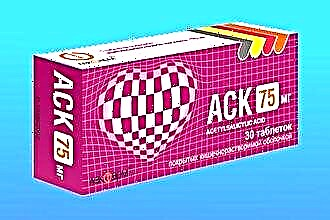Quite often, pregnant women experience exacerbations of chronic diseases of an infectious and inflammatory nature, as well as infection with various pathogens that provoke a sore throat during pregnancy.
 All this is due to certain changes in the woman's body:
All this is due to certain changes in the woman's body:
- hormonal changes necessary to maintain pregnancy;
- a decrease in the activity of the immune system, which prevents the conflict between the fetus and the woman;
- depressive states, stresses associated with both the awareness of the pregnancy itself and hormonal changes;
- lack of vitamins, microelements, since they are consumed by two organisms.
In the third trimester, fetal protection is more resistant to the influence of negative factors. It is provided by the protective factors of the fetus and a fully formed placenta.
When the throat is sore during pregnancy, among the reasons it is worth highlighting:
- viral pathogenic microorganisms (ARVI, influenza). A viral disease can be suspected by clinical signs (nasal congestion, rhinorrhea, cephalalgia, joint aches, muscle aches, malaise, dizziness, subfebrile hyperthermia and loss of appetite.
- bacterial pathogens, for example, streptococci, the activity of which damages the mucous membrane of the tonsils, provoking tonsillitis. Symptomatically, the disease is manifested by intense pain in the throat, febrile hyperthermia and manifestations of intoxication.
- provoking environmental factors, for example, cold / dry air, smog, which, with prolonged exposure, provoke irritation of the mucous membrane with the subsequent development of inflammation. Microtraumatization of the membrane leads to a decrease in protective functions, which predisposes to infection.
- an allergic factor (wool, pollen, fluff, dust), which, after contact with the mucous membrane of the oropharynx / nasopharynx, leads to the development of allergic pharyngopathy. Also, a woman is worried about itching, rhinorrhea, lacrimation and coughing.
Infections are especially dangerous for the period of pregnancy, in which the infectious pathogen circulates through the bloodstream, increasing the risk of complications, including from the fetus.
General recommendations
 Recovery can be accelerated not only by local action on the lesion, but also by methods that help strengthen the immune system and fight the infection. A pregnant woman must follow these rules:
Recovery can be accelerated not only by local action on the lesion, but also by methods that help strengthen the immune system and fight the infection. A pregnant woman must follow these rules:
- limitation of physical activity, sometimes bed rest is required;
- reducing the duration of contact with people with infectious diseases;
- limit the perception of stress;
- eat right, focusing on vitamin products;
- plentiful warm drinks, for example, compotes, teas, fruit drinks and jelly. The liquid allows you to speed up the elimination of toxic products.
In the third trimester, the volume of daily fluid should be monitored by a doctor to avoid the appearance of edema.
- vitamin therapy with special complexes for pregnant women;
- regular ventilation of the room, frequent wet cleaning.
If discomfort appears in the throat of a pregnant woman, it is prohibited:
- take antibacterial / antiviral drugs without first consulting a specialist;
- use drugs and herbs prohibited during pregnancy (sage for internal use);
- carry out procedures related to the use of hot water or steam (hot shower, mustard plasters, compresses, foot baths).
Local impact
If a pregnant woman has a sore throat, treatment should be started with topical application of solutions.
Thanks to frequent rinsing and irrigation of the pharyngeal mucosa, it is possible to achieve antimicrobial, anti-inflammatory, anti-edema and analgesic effect. To do this, apply:
- Miramistin, which is allowed to be used undiluted. The tool has a broad antimicrobial effect.
- Furacilin is available in powder or tablet form. The rinse solution is prepared according to the instructions. If you use the medicine in the form of tablets, you need to crush two tablets thoroughly and dissolve in 250 ml of water.
- Chlorophyllipt is often prescribed for streptococcal infection, but the solution is effective in the case of other infectious diseases with purulent discharge. To prepare the medicine, you need to dilute 5 ml in 210 ml of water.
- Chlorhexidine is used in the form of a 0.05% solution.
- Ingalin has anti-inflammatory and analgesic effects.
- Rotokan, thanks to its herbal composition (chamomile, calendula, bearberry), provides a good therapeutic effect without side reactions. For dilution, 15 ml is enough for 210 ml of water.
From tablet forms, Faringosept and Lisobakt are used. Of the most affordable and common recipes that are used at home, it is worth highlighting:
- soda-salt medicine flashes quickly and without large material costs to get the maximum effect. To prepare the solution, it is necessary to mix the ingredients in a volume of 5 g until completely dissolved. If the pregnant woman does not have allergic reactions to iodine-containing drugs, you can add 2 drops of iodine to the solution.
- with the help of propolis, you can reduce the severity of inflammation and provide pain relief for the mucous membrane of the pharynx. For a 210 ml rinse with lukewarm water
 15 g of propolis. You can also dissolve a piece of honey before bed.
15 g of propolis. You can also dissolve a piece of honey before bed. - dried blueberries (100 g) should be poured with half a liter of water, put on a small fire and boiled until 200 ml of liquid is obtained. The resulting broth should be filtered and rinsed.
- Sage for internal use for pregnant women is prohibited, however, in the form of a rinse solution, it is quite effective. For preparation, 10 g of the herb should be infused in hot water with a volume of 220 ml. After filtering, you can start the procedure.
- chamomile or calendula in a volume of 10 g can be brewed in boiling water (210 ml). After filtering, you can use the infusion to gargle.
- onion juice can be used for the procedure. For a mug of warm water, 5 ml of juice is enough. To improve the taste and enhance the therapeutic effect, add 15 g of honey.
From medicinal herbs, pregnant women are prohibited from sage for internal intake, linden flowers and raspberry juice.
To get the maximum effect from rinsing, you must adhere to some recommendations.
- the temperature for the rinsing solution should not exceed 50 degrees. This will help avoid burning the oropharynx;
- the procedure is performed every 90 minutes;
- during the day, rinsing solutions of various compositions should be alternated;
- after rinsing, you should not drink liquid and eat for half an hour. This will help to have a healing effect of the drug applied to the mucous membrane of the pharynx.
Inhalation for sore throat
 The safest and most convenient inhalation is carried out using a nebulizer. The following means are used for the device:
The safest and most convenient inhalation is carried out using a nebulizer. The following means are used for the device:
- Chlorophyllipt has an anti-inflammatory effect on the mucous membrane of the pharynx. Stimulation of regenerative processes ensures rapid healing of the mucous membrane. The solution is diluted 10 times with saline.
- eucalyptus tincture diluted with 1 drops per 20 ml of saline solution allows you to moisturize and soothe the mucous membrane of the oropharynx.
- alkaline inhalations with still mineral water (Borjomi, Essentuki). 4 ml of water is enough (without dilution).
- Rotokan is diluted 40 times. Thanks to the herbal composition, the medicine quickly restores the structure of the pharyngeal mucosa.
- Furacillin is used for suspected mucosal infections. Depending on the concentration of the purchased solution, it should be used in pure form or additionally diluted with saline.
- Dioxidine has a powerful antimicrobial effect. It is recommended to dilute 5 times.
- Miramistin is also indicated for infectious lesions of the pharyngeal mucosa.
Features of inhalation with a nebulizer
The benefits of nebulizer therapy include:
- steam temperature control, which prevents burns;
- strict adherence to dosage;
- the ability to use in the supine position;
- breathing synchronization is not required;
- constant supply of the drug;
- the ability to adjust the diameter of the particles into which the medicinal solution is broken.
The essential oil is not used for a nebulizer, as small particles can reduce the airway lumen and make breathing difficult. In addition, oil particles contaminate the device, therefore, the risk of the multiplication of infectious microbes in the components of the nebulizer increases, after which it becomes a source of infection.
 For dilution of medicinal solutions, only saline solution is used, heated to room temperature. The device for its operation consumes 1 ml of physical solution. For one inhalation procedure, 4 ml of the prepared solution is enough.
For dilution of medicinal solutions, only saline solution is used, heated to room temperature. The device for its operation consumes 1 ml of physical solution. For one inhalation procedure, 4 ml of the prepared solution is enough.
After inhalation, you should not go out into the cold, so as not to reduce the therapeutic effect of the procedure.
Systemic treatment
If a sore throat is sore during pregnancy, what to do? When the effect of rinsing and inhalation is not observed, the symptoms intensify, and the temperature also rises, you should consult your doctor. Usually, antiviral drugs are prescribed when a viral disease is diagnosed. During pregnancy, the following medications are allowed:
- Nazoferon comes in the form of nasal drops. The drug has antiviral, immunomodulatory, decongestant and anti-inflammatory effects. The medicine is taken 3 drops in the nasal passages three times a day. The duration of the therapeutic course is 5 days.
- Engystol is considered a homeopathic remedy with antiviral effect. It is used for prophylactic and therapeutic purposes, especially for ARVI during pregnancy. The tablet should be sucked under the tongue 20 minutes before meals three times a day. In case of an acute onset of the disease caused by a viral infection, it is required to dissolve the pill every 15 minutes for 2 hours, after which the pill is taken three times a day. The duration of the treatment course can be up to 10 days.
With a bacterial disease (exacerbation of chronic infectious pathology - tonsillitis, sinusitis, or with primary bacterial infection), antibacterial agents are required.
Of the antibiotics, penicillins are allowed for pregnant women, for example, Amoxicillin, cephalosporins (Cefuroxime, Cephalexin).
When the temperature rises above 37.5 degrees, it is necessary to take antipyretics based on paracetamol (Nurofen).
Antipyretics with aspirin are prohibited, as they are toxic to the fetus.
With the appearance of hyperthermia above 38 degrees, the risk of fetal hypoxia increases. Throughout the entire period of gestation, a woman needs to be attentive to her health, since the development of the fetus depends on this. The first trimester is especially dangerous with complications, but they are possible in the second half of pregnancy.

 15 g of propolis. You can also dissolve a piece of honey before bed.
15 g of propolis. You can also dissolve a piece of honey before bed.

